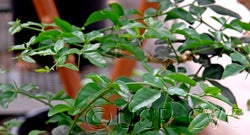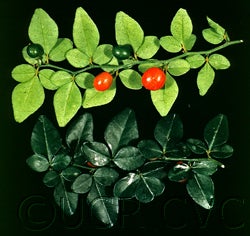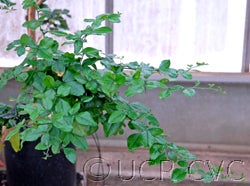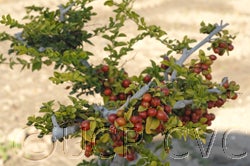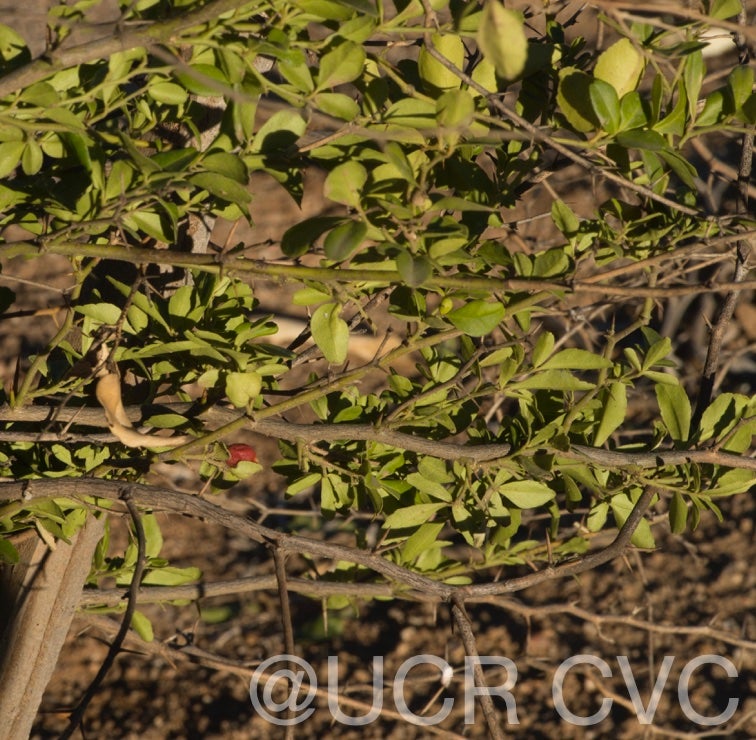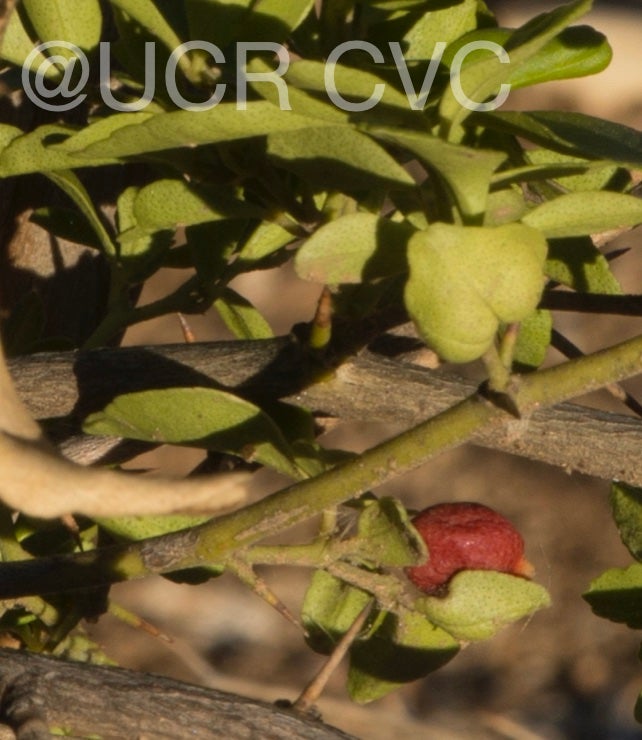Trifoliate limeberry
CRC 3507
PI 539800
Source
Received as seed from Henry Nakasone, Univ. of Hawaii, 1956.
Parentage/origins
Parents unknown.
Rootstocks of accession
Own roots.
Season of ripeness at Riverside
Year round
Season of flowering at Riverside
December to April
Notes and observations
Too tender for field, kept in greenhouse only.
Description from The Citrus Industry Vol. 1 (1967)
"A glabrous shrub or small tree with terete twigs bearing paired spines in the axils of the leaves; leaves 3-foliolate, the terminal leaflet ovate with a cuneate base and a rounded emarginate tip, 2-4 X 1.5-2 cm; lateral leaflets much smaller than the terminal one (1-2-2 X 0.8-1.2 cm), broadly rounded at the tip, cuneate at the base; petiolules very short (1.5-2 cm); petioles short (3-5 mm), wingless; flowers appearing singly or 2 or 3 in the axils of the leaves; peduncles short (3-4 X 1 mm); flower buds cylindrical, 10-12 X 3-4 mm; flowers 3-merous (but with 6 stamens); sepals small (1.5-2 mm long), 3-lobed, green, persistent; petals white, 10-13 X 3.6-4.5 mm; staminal filaments slender, glabrous, 9-11 mm long, anthers oblong, 2 X 1 mm; disk annular or short-cylindric; ovary ovoid or fusiform with 3 locules, each with 1 ovule, narrowed into a slender, deciduous style with a capitate, 3-lobed stigma; fruit ovoid or subglobose, sometimes apiculate, 1.2-1.5 cm long, dull reddish-orange or crimson when fleshy ripe; peel with many small oil glands; seeds 1-3, immersed in mucilaginous pulpy flesh.
Triphasia trifolia is very widely grown in all tropical and subtropical regions as an ornamental shrub. It is also used for hedges. The fragrant white flowers are soon succeeded on the branches by the small dull-red berries. The foliage is handsome, a shiny dark green, and the plant usually makes a round-topped shrub that does not grow too large for dooryard plantings. Triphasia trifolia has become naturalized in certain sections of the United States, in "hammocks, fields and cultivated grounds, coastal plain, Florida to Texas," according to Small (1933, p. 760)."
Availability
Not commercially available in California.
USDA Germplasm Resources Information Network page for Triphasia trifolia
